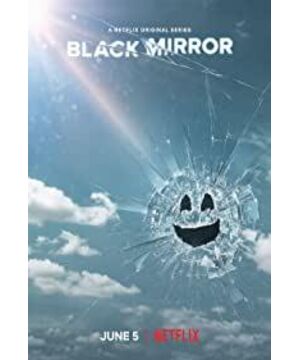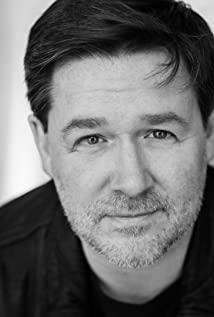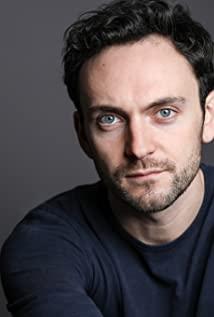Iiam foxwell is a lawyer who becomes suspicious of his wife at a house party and discovers through memory retrieval that his wife is having an affair with a certain guest. After further memory review and reasonable suspicion, and went to the "suspect"'s home for evidence collection and questioning, he confirmed the relationship between his wife and that person, and suspected that his child was not his own. He forced his wife to replay memory to confirm this. - He is not the biological father of the child. His wife showed remorse, and when he learned the truth, he collapsed and fell into a state of hysteria. And the beauty of the past in objective memory, his wife's frown and smile, all reappeared in front of him, but all this will never go back. The truth destroys everything. He finally picked up the knife and dug out the memory chip behind the ear...
In the play, the memory technology has been replaced in advance, but the rest of human life remains the same, which is more like a theoretical model, which discusses the situation of human survival A chain reaction is triggered when one of the parameters is changed. So the story is so simple and blunt that it borders on contrived, but it still reveals the cruelty of truth or the price of truth fetishism—the real us are in rags and naked.
The show questions this techno-ethics by revealing that truth (memory) is a double-edged sword, while its subtext emerges: the proposition about the limits of truth—the weight of truth one can bear, Will one more truth become an unbearable lightness in life? But obviously, any presupposed position on this issue will be met with Socratic rebuke, with white lies and cruel truths becoming the two ends of the trade-off.
And the story that happened in East Germany after the fall of the Berlin Wall in the 1990s can be said to be a realistic answer to such a proposition-it has a certain intertextuality with this series: before the reunification of the two Germanys, 10% of the East Germans volunteered or were forced to act as informants for the government, monitoring and reporting on the movements of their friends, colleagues, relatives and state security, and the person who might be monitored was also an informant. Informing each other became the norm in East German society. After the reunification of Germany, the government decided to destroy all informant files. This dispelled doubts, facilitated a reconciliation, and brought East Germans, who had once been suspicious and resentful of each other, lightly loaded into the arms of Germany. The reconciliation of society is achieved by burying one of the most painful historical memories (the informant's moral file), which is the opposite and complementary to the show. Of course, this story is not only about the proposition of individual memory, but also about the memory of the community. But it reveals a positive correlation between the cruelty of truth and the difficulty of understanding.
If the above East German story is somewhat ostrich in the face of the past, then another story I mention below will be admired by all who know it: how South Africa, after apartheid was abolished, reckoned with the past and eliminated it. Ethnic divide has become an immediate and thorny problem. It's not just the oppressed blacks who need to break free, but also the white people who are seen as oppressors with whom they have been "cuffed" for so long. Forgetting and trial may be the easiest way, but the first black president Mandela and Archbishop Tutu have found a road of "truth and reconciliation" for South Africa: those who have done evil, lead the specially established Archbishop Tutu The "Truth and Reconciliation Commission" of the United States filed an application to tell what happened in those sinful years and to apply for a pardon. Over the years, the truth commission has heard from 21,000 witnesses, both victims and perpetrators. Obtained the detailed historical truth, except for a few people who have sinned, most people have been forgiven. This kind of tolerance and understanding based on the knowledge of the truth has eliminated national feuds, and the blacks and whites broke free from their chains and embraced each other, realizing the reconstruction of the hearts of the country and its citizens, and winning the future of the country and the nation. This is one of the greatest stories in human history, a story of memory and understanding.
When we revisit this South African past and then look back at the series, we can find that the end of the series (dig out the chip (the chip is all the fault)) - through the case, this technical ethics proposition is easily given a negative negative The answer - quite debatable, it presents a certain parochiality compared to the South African story.
More importantly, the dilemma in the series is not possible only in the context of this new technology (technology is not a sufficient and necessary condition for the dilemma, so its inverse proposition is also invalid). We can slightly modify the story to remove the technical situation set in the memory chip episode and still make this dilemma still true: a man gets the truth (not through a memory chip, but in a conventional way), and he breaks down. Because there are obviously various means of getting the truth, which do not depend entirely on this memory technique. Therefore, the specific technical background of the memory chip set by the screenwriter is not a decisive factor in the story described in the drama, nor does it reflect the unique dominance of this memory technology, nor does it write about the ethical issues that can only be derived from this technology. But it is still the psychological impact of an old-fashioned truth on people, and the question of how to face the truth. It's more of a hybrid of a technical situation and a ready-made emotional story. Thus, the core of the ethical issues that memory chips may raise is not touched. The main ethical issue facing memory chips is not the psychological impact of the truth on people, but the dissemination of materialized memories. What is legal dissemination, whether third-party portrait rights are infringed, the effectiveness of chips as legal evidence, and if memory chips are rewritten with technology? How will wait. Of course, this will be another episode.
View more about Black Mirror reviews











